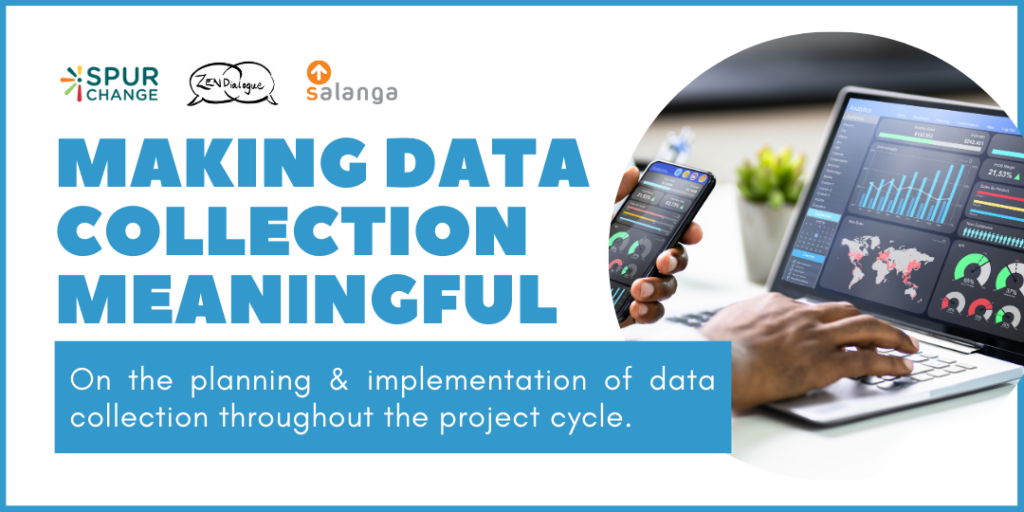
Making Data Collection Meaningful is an intensive workshop organized by Spur Change, in collaboration with the Inter-Council Network (ICN) members, Salanga and ZENDialogue, as a practical hands-on experience for participants to dive into planning for data collection, gender-sensitive, feminist and community-led approaches to data collection, and technology for data collection with a combination of synchronous and asynchronous learning modules.
Below, you’ll find the asynchronous learning materials (videos, worksheets, handouts and more) from the workshop which can be completed through self-learning. We recommend you follow each module in progression, as the knowledge builds with each successive step.
Please note that this page has been updated as of Fall 2024. The modules have been reordered and additional resources have also been added.
As an introduction to this course, we suggest taking the Micro-learning session on Baseline Surveys first.
